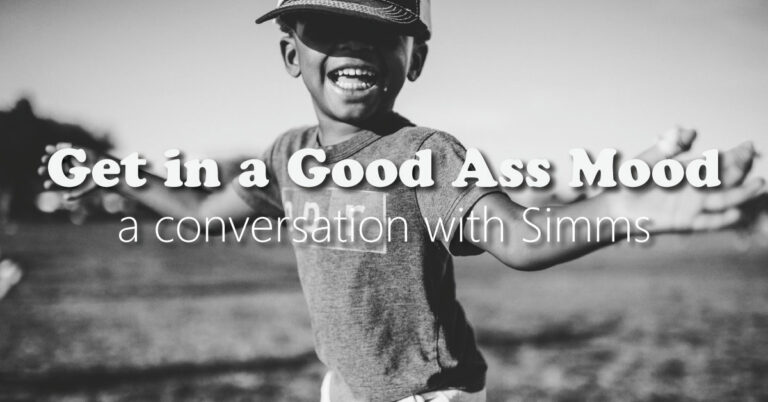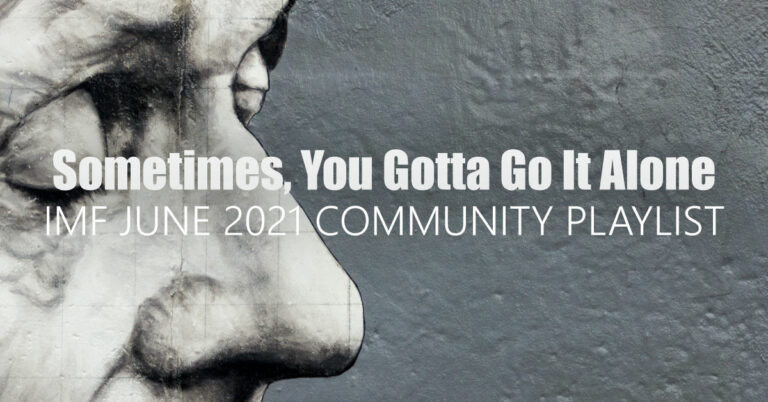Words of Advice for Musicians
On a relatively mild Spring morning, I opened up the IMF discord to find a fabulous motivational list for music makers. This is often a topic of discussion at IMF, since we have many people who visit us when they are stuck in a creative rut or trying to devise the concept for a new album. We often find ourselves discussing the merits of creative constraints and mixing plugins, but we never take a step back to really summarize the “tenets” of our music making philosophy.
This is exactly what John did.
What impressed me about the initial list was the synthesize years of practical and philosophical experience into a concise list. I immediately thought of two other friends, Dolwedge and Rêve Vague, who have similar years of experience under their belts. What you see below is their collective wisdom, boiled down to a set of principles that all musicians can ruminate upon.

John’s List
1. Learn some of the rules and then break them when the song calls for it
2. Write for you
3. Let lines in the music breathe, give spaces, the space in between notes is as important as the notes themselves… well until you want to utterly stack things up and make a wall of sound then all bets are off
4. Enjoy yourself
5. Let things be super simple. Let them be complicated.
6. Layers.
7. Strip things bare
8. Use chord voicing that leave space between … widen things out
9. Densify things. Bring all the notes into tight clusters
10. Carve space for each line by using EQ…. example … cut the low frequencies from instruments that don’t need them to allow the bass and kick to shine
11. Remember low frequencies generally stay mono because they’re so low it’s hard to perceive where they’re coming from
12. Full panned hard left or hard right can be jarring… use intentionally or dial it back a bit.
13. If 10 people tell you something doesn’t sound right to them, but it sounds perfect to you… stick with it! On the other hand if 10 people tell you it didn’t sound right and you aren’t sure… make adjustments.
14. Let your ears rest.
15. Don’t delete. It’s normal to not like what you just did or recorded yesterday only to find you like it a couple days later.
16. Don’t compare yourself to others… we’re all in this together. It’s not a competition
17. Try writing songs in styles you don’t usually do. Or try using an instrument or vst or tool you don’t normally use. It’ll push your creative juices for when you go back to your stuff you love.
18. Be kind. To yourself, and to everyone else you listen to. Constructive comments. Constructive feedback. Don’t put yourself down. Don’t put others down.
19. Unless you’re working in a style that uses a ton of reverb, make sure you didn’t put too much reverb on. It will muddy things. (That said. I love reverb)
20. Thanks for reading all of these. You’re awesome. Go back and read rule 1.
Rêve Vague’s List
1. Music belongs to everyone. But the only reason to write music is because you LOVE music.
2. Strive to make music that you enjoy and would listen to. You are the intended audience.
3. DO THE WORK. Don’t make excuses.
4. Don’t sing words you don’t believe.
5. Don’t get caught up in trends.
6. Embrace limitations.
7. Buying new gear is fun and can inspire a piece. But don’t let it get in the way of making music. They’re just tools. Keep a tight budget and live within your means.
8. If you don’t have chords and a melody; then you don’t have a song.
9. Learn a chordal instrument. Piano or guitar.
10. Music theory shouldn’t scare you. It opens up new possibilities.
11. Listen to great music. Watch great films. Read great books. Go to your local art museum.
12. Listen to your favorite songs on repeat. Find out what makes them tick (lyrics/melody/harmony/production). Return to them over and over.
13. Keep a journal. Even if it’s not consistent it will help you understand yourself better. Freewriting is an incredible exercise. Write things down on paper. Notes, mix edits, chord changes, lyrics, concepts etc. Use the journal. Save them. Write the date on every page.
14. Don’t be afraid to repeat yourself. Sometimes an artist returns to a topic. That’s part of finding your voice and your aesthetic.
15. Don’t get upset if someone doesn’t like or listen to your music. Some feedback is more helpful than others.
16. Music is not a transaction. It’s about connection.
17. Limit distraction. Turn off your phone.
18. Take breaks. You will get in a loop sometimes. Go for a walk. A drive. Take a couple days, weeks, months off from a song.
19. Great art doesn’t give you answers. Only more questions. Don’t expect closure.
20. It’s impossible not to compare your music to others. But remember everyone has doubts about their work. Your value as a person doesn’t derive from your musical ability.
21. Remember to be kind. Remember to be human. Don’t miss out on too much of life in pursuit of making music.
Dolwedge’s List
1. The ear is mightier than the theory. If it sounds right to you… it is right.
2. If it doesn’t sound right to you, ask for some feedback and let folks know what you want help with.
3. Listening is the best way to learn what you like, what you want to make, and what is possible.
4. You don’t need to play an instrument to have music in you.
5. Learning theory or an instrument will not take away your creativity… but it might give you new ideas.
6. Learning some basics on a piano (or keyboard) will help almost everything you do in music.
7. Interesting rhythm is everything. You can make a 1 note song interesting with good rhythms.
8. There is no wrong way to make a melody but there are fun strategies.
9. Starting melodies before the beat or after will make them more interesting and natural sounding.
10. Build a melody by taking a simple melody and decorating it. For example, create a slow simple melody to start with and then add little passing tones and suspensions to make it interesting.
11. If your melody is pattern based, break the pattern! For example repeat a note or start on a different beat.
12. Singing is more about emotion (and rhythm) than getting the right notes.
13. Singing is an instrument that requires practice (hitting the right notes and getting comfortable with a song).
14. A whole lot of songs have the same chord progressions… you can’t copyright them. Steal them from songs you like and make them yours.
15. There are ways to make any chord progression work even if the chords are in very unrelated keys. Find notes that are in both keys and use them in the melody to pivot between them.
16. Repeating something that sounds weird or like a mistake becomes normal after a few times.
17. Music makes your life better even if you don’t make a cent from doing it.
18. There is an audience for everyone. It doesn’t matter how bad you think you are… there’s likely someone out there that would like what you do if they heard it.
19. There’s probably a YouTube video that answers your technical question.
20. The answer to most music questions is: “It depends”. There are a lot of ways to make music and your ideas will have an impact on the best way for you so go back to #1.






